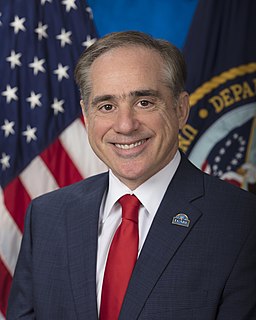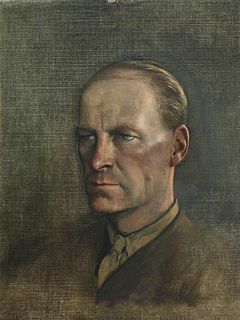A Quote by Ayn Rand
A 'whim' is a desire experienced by a person who does not know and does not care to discover its cause.
Related Quotes
Is love the desire—no, the need—to be with that person, whatever the cost? Does it cause the rue of rage when you see that person with another? Does it make you ache to hold her, to whisper things that sound foreign and strange to your tongue? Does it make you wish for things you know can never be? I haven't the answers, Riley. In all that I've learned over the years, no one has ever mentioned a force such as this. But whatever it is, I feel it for you. We would have been good together.
Slavery is no scholar, no improver; it does not love the whistle of the railroad; it does not love the newspaper, the mailbag, a college, a book or a preacher who has the absurd whim of saying what he thinks; it does not increase the white population; it does not improve the soil; everything goes to decay.
Wonder [admiratio astonishment, marvel] is a kind of desire for knowledge. The situation arises when one sees an effect and does not know its cause, or when the cause of the particular effect is one that exceeds his power of understanding. Hence, wonder is a cause of pleasure insofar as there is annexed the hope of attaining understanding of that which one wants to know. ... For desire is especially aroused by the awareness of ignorance, and consequently a man takes the greatest pleasure in those things which he discovers for himself or learns from the ground up.
Therefore, the truly great man, although he does not injure others, does not credit himself with charity and mercy (these are natural to him). He does not seek gain, but does not despise his followers who do. He struggles not for wealth, but does not take credit for leaving it alone... The ranks and emoluments of the world are to him no cause for joy, it's punishments and shame no cause for disgrace.
Part of what any good health-care professional does, including an advanced-practice nurse, is know when it is time to seek help from more experienced professionals. I'm a primary care doctor. It doesn't mean I know everything. When something is beyond my competency or expertise, I seek consultation from my colleagues.
We know it (meat eating) is indisputably the number one cause of global warming. So what does it mean exactly to be an environmentalist on a daily basis if you are not thinking about the number one cause of global warming or one of the top two or three causes of all other environmental problems? Does it mean you are necessarily someone who doesn't care about the environment? Obviously not, but it might mean you have a blind spot for something big.
When one does another person an injustice, in some mysterious way it does one good to discover (or to persuade oneself) that the injured party has also behaved badly or unfairly in some little matter or other; it is always a relief to the conscience if one can apportion some measure of guilt to the person one has betrayed.
I experienced firsthand not only the mental and physical damage being unhealthy does to a person, but I also recognized the discrimination many overweight people faced because of their public image. And I, like everyone else, is susceptible to falling into negative patterns that can cause weight gain.
Contemporary philosophers have exercised themselves with the problem of our knowledge of other minds. Enmeshed in the dogma of the ghost in the machine, they have found it impossible to discover any logically satisfactory evidence warranting one person in believing that there exist minds other than his own. I can witness what your body does, but I cannot witness what your mind does, and my pretensions to infer from what your body does to what your mind does all collapse, since the premises for such inferences are either inadequate or unknowable.






































